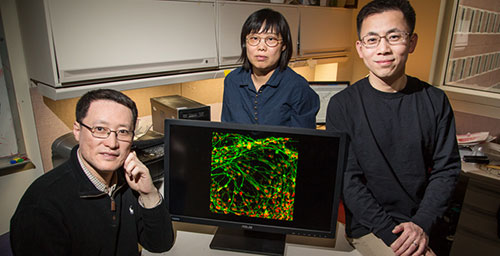 Researchers report they can generate human motor neurons from stem cells much more quickly and efficiently than previous methods allowed. The finding will aid efforts to model human motor neuron development, and to understand and treat spinal cord injuries and motor neuron diseases such as amyotrophic lateral sclerosis.
Researchers report they can generate human motor neurons from stem cells much more quickly and efficiently than previous methods allowed. The finding will aid efforts to model human motor neuron development, and to understand and treat spinal cord injuries and motor neuron diseases such as amyotrophic lateral sclerosis.
Apr 1st, 2014
Read more
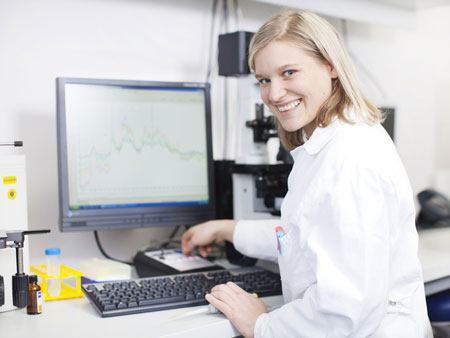 In order to investigate inflammation, tumors or stem cells, medical practitioners analyze living cells. Non-invasive optical procedures such as Raman spectroscopy accelerate this procedure. Researchers have now developed it to industrial scale.
In order to investigate inflammation, tumors or stem cells, medical practitioners analyze living cells. Non-invasive optical procedures such as Raman spectroscopy accelerate this procedure. Researchers have now developed it to industrial scale.
Apr 1st, 2014
Read more
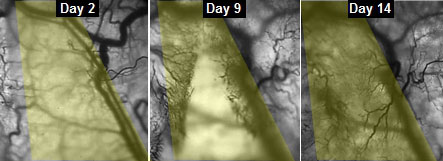 Strong, lab-grown muscle is the first to heal itself after animal implantation.
Strong, lab-grown muscle is the first to heal itself after animal implantation.
Apr 1st, 2014
Read more
Scientists have developed a new substance which could simplify the manufacture of cell therapy in the pioneering world of regenerative medicine.
Mar 31st, 2014
Read more
A team reverses a liver disorder in mice by correcting a mutated gene.
Mar 30th, 2014
Read more
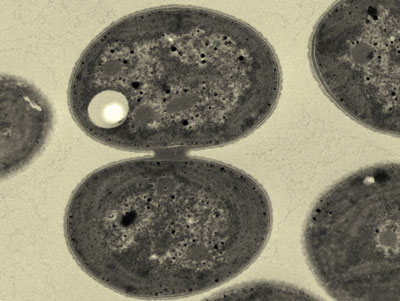 Genetic engineering increases the yield of a biodegradable plastic made by single-celled cyanobacteria.
Genetic engineering increases the yield of a biodegradable plastic made by single-celled cyanobacteria.
Mar 28th, 2014
Read more
An international team of scientists has synthesized the first functional chromosome in yeast, an important step in the emerging field of synthetic biology, designing microorganisms to produce novel medicines, raw materials for food, and biofuels.
Mar 27th, 2014
Read more
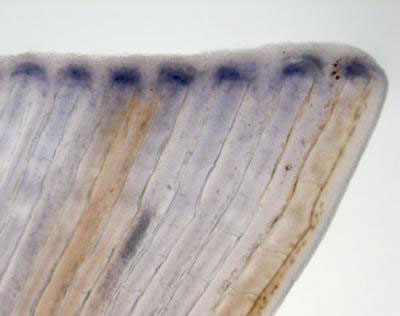 The reason why some animals can regenerate tissues after severe organ loss or amputation while others, such as humans, cannot renew some structures has always intrigued scientists. In a new study, researchers show, for the first time, that zebrafish regenerates its caudal fin by a process that involves a specific channel in the cell membrane, called V-ATPase, that pumps hydrogen ions, generating an electrical current.
The reason why some animals can regenerate tissues after severe organ loss or amputation while others, such as humans, cannot renew some structures has always intrigued scientists. In a new study, researchers show, for the first time, that zebrafish regenerates its caudal fin by a process that involves a specific channel in the cell membrane, called V-ATPase, that pumps hydrogen ions, generating an electrical current.
Mar 27th, 2014
Read more
 The key is the overexpression of the ATHB25 gene. This gene encodes a protein that regulates gene expression, producing a new mutant that gives the seed new properties. Researchers have proven that this mutant has more gibberellin - the hormone that promotes plant growth - which means the seed coat is reinforced as well.
The key is the overexpression of the ATHB25 gene. This gene encodes a protein that regulates gene expression, producing a new mutant that gives the seed new properties. Researchers have proven that this mutant has more gibberellin - the hormone that promotes plant growth - which means the seed coat is reinforced as well.
Mar 27th, 2014
Read more
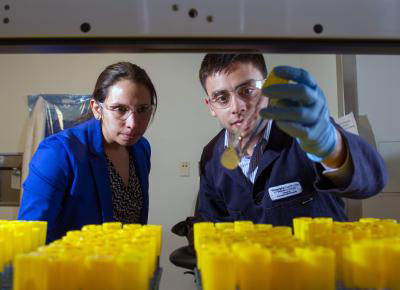 Researchers have engineered a bacterium to synthesize pinene, a hydrocarbon produced by trees that could potentially replace high-energy fuels, such as JP-10, in missiles and other aerospace applications.
Researchers have engineered a bacterium to synthesize pinene, a hydrocarbon produced by trees that could potentially replace high-energy fuels, such as JP-10, in missiles and other aerospace applications.
Mar 26th, 2014
Read more
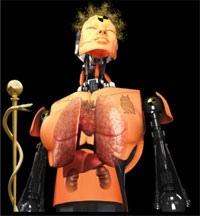 So-called organ-on-a-chip technology is being developed to provide a better and less expensive method of drug and toxicity testing.
So-called organ-on-a-chip technology is being developed to provide a better and less expensive method of drug and toxicity testing.
Mar 26th, 2014
Read more
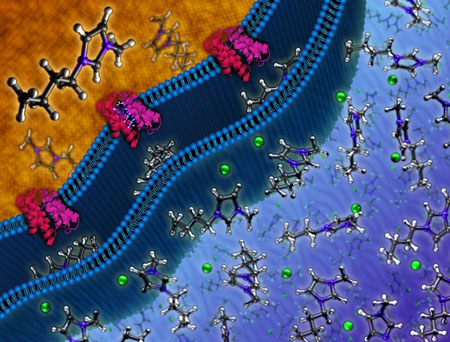 Researchers have identified the genetic origins of a microbial resistance to ionic liquids and successfully introduced this resistance into a strain of E. coli bacteria for the production of advanced biofuels.
Researchers have identified the genetic origins of a microbial resistance to ionic liquids and successfully introduced this resistance into a strain of E. coli bacteria for the production of advanced biofuels.
Mar 26th, 2014
Read more
By optimizing the latest version of the Broad?s Genome Analysis Toolkit (GATK) 3.1, scientists were able to achieve three to five times overall improvement in variant discovery to meet the challenges of research and accelerate discovery.
Mar 26th, 2014
Read more
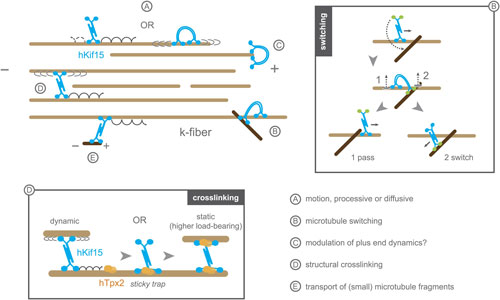 Researchers at Warwick Medical School have shown for the first time how a protein motor, Kif15, uses acrobatic flexibility to navigate within the mitotic spindle. Understanding how it works could prove vital for the development of targeted cancer therapies.
Researchers at Warwick Medical School have shown for the first time how a protein motor, Kif15, uses acrobatic flexibility to navigate within the mitotic spindle. Understanding how it works could prove vital for the development of targeted cancer therapies.
Mar 26th, 2014
Read more
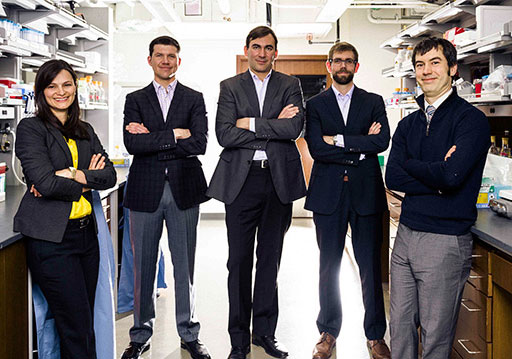 With such ambitious goals as helping cure cancer and eradicating pervasive disease, some of the most talented scientists in the country from the emerging field of synthetic biology are breaking new ground at Northwestern University.
With such ambitious goals as helping cure cancer and eradicating pervasive disease, some of the most talented scientists in the country from the emerging field of synthetic biology are breaking new ground at Northwestern University.
Mar 25th, 2014
Read more
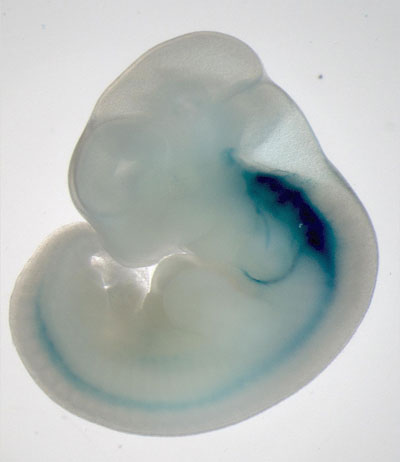 Berkeley Lab researchers led the development of a new technique for identifying gene enhancers - sequences of DNA that act to amplify the expression of a specific gene - in the genomes of humans and other mammals. Called SIF-seq, this new technique complements existing genomic tools, such as ChIP-seq, and offers additional benefits.
Berkeley Lab researchers led the development of a new technique for identifying gene enhancers - sequences of DNA that act to amplify the expression of a specific gene - in the genomes of humans and other mammals. Called SIF-seq, this new technique complements existing genomic tools, such as ChIP-seq, and offers additional benefits.
Mar 24th, 2014
Read more
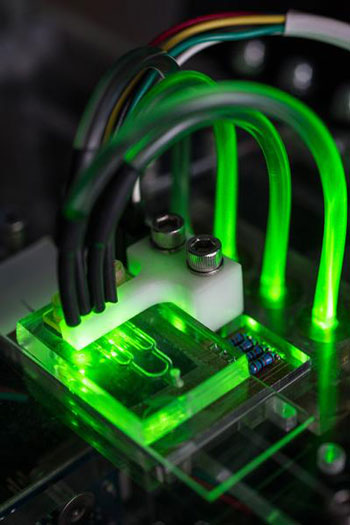 A new microfluidic method for evaluating drugs commonly used for preventing heart attacks has found that while aspirin can prevent dangerous blood clots in some at-risk patients, it may not be effective in all patients with narrowed arteries. The study, which involved 14 human subjects, used a device that simulated blood flowing through narrowed coronary arteries to assess effects of anti-clotting drugs.
A new microfluidic method for evaluating drugs commonly used for preventing heart attacks has found that while aspirin can prevent dangerous blood clots in some at-risk patients, it may not be effective in all patients with narrowed arteries. The study, which involved 14 human subjects, used a device that simulated blood flowing through narrowed coronary arteries to assess effects of anti-clotting drugs.
Mar 24th, 2014
Read more
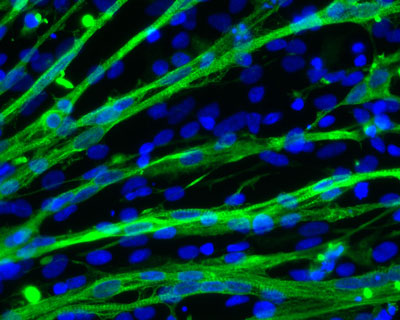 As stem cells continue their gradual transition from the lab to the clinic, a research group at the University of Wisconsin-Madison has discovered a new way to make large concentrations of skeletal muscle cells and muscle progenitors from human stem cells.
As stem cells continue their gradual transition from the lab to the clinic, a research group at the University of Wisconsin-Madison has discovered a new way to make large concentrations of skeletal muscle cells and muscle progenitors from human stem cells.
Mar 21st, 2014
Read more
 Researchers report they can generate human motor neurons from stem cells much more quickly and efficiently than previous methods allowed. The finding will aid efforts to model human motor neuron development, and to understand and treat spinal cord injuries and motor neuron diseases such as amyotrophic lateral sclerosis.
Researchers report they can generate human motor neurons from stem cells much more quickly and efficiently than previous methods allowed. The finding will aid efforts to model human motor neuron development, and to understand and treat spinal cord injuries and motor neuron diseases such as amyotrophic lateral sclerosis.
 Subscribe to our Biotechnology News feed
Subscribe to our Biotechnology News feed











